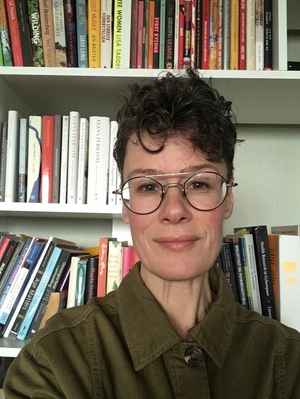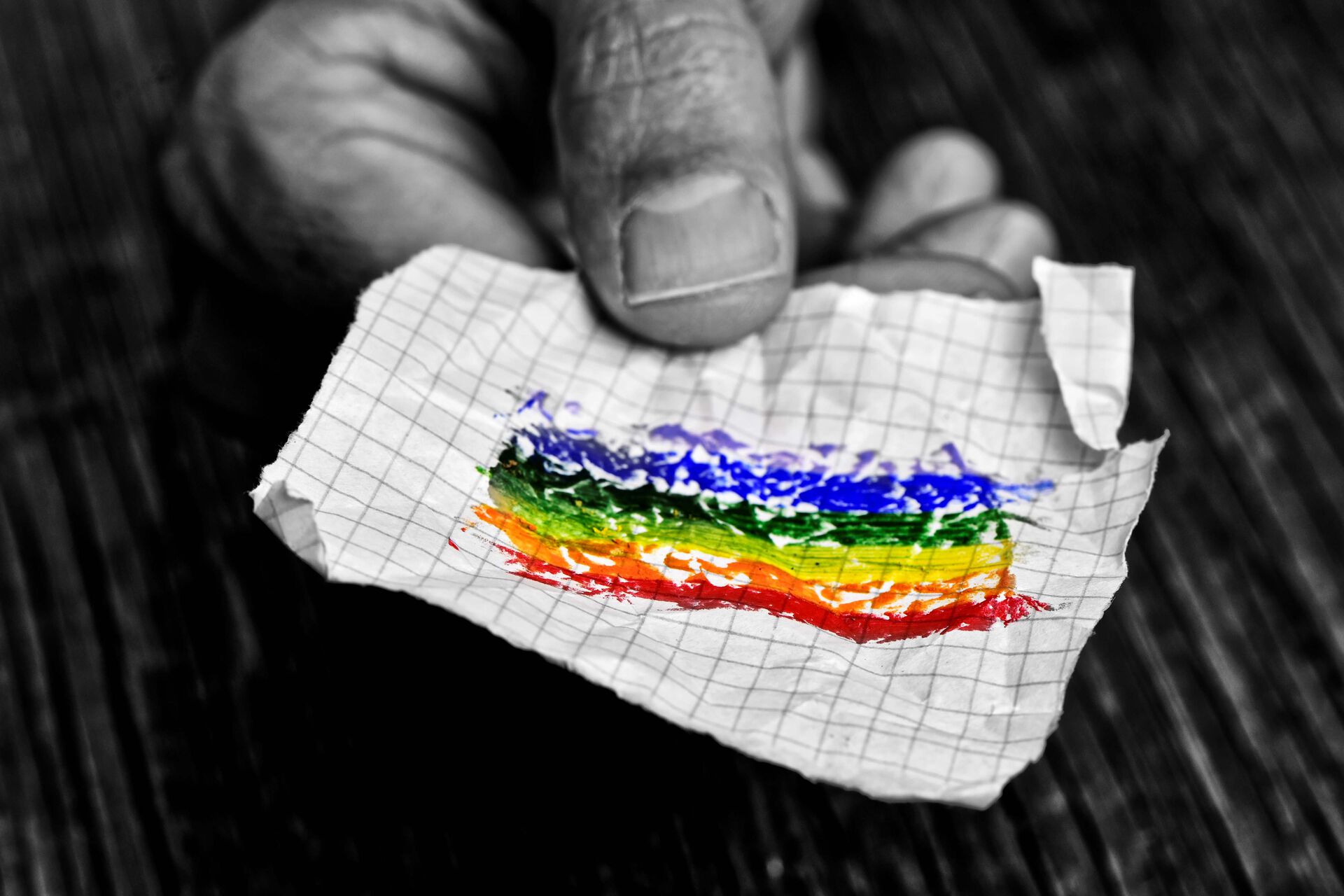Despite the generally increased knowledge about sexual orientation, gender identity and expression in society, older queer persons fear negative consequences when encountering health and social care services. As a result, they do not dare to open up. Health and social care personnel, on the other hand, fear making mistakes - and do not dare tot take initiate or follow up this conversation.
– This creates a vicious spiral. It is often during the most vulnerable periods of our lives that we encounter health and social care personnel, either as patients or relatives. This is when it is especially important to be seen and recognised for who we are, says Janne Christine Haugnes Bromseth.
Not in the curriculum
She is a researcher at Eastern Norway Research Institute at Inland Norway University of Applied Sciences, and has for many years focused on and studied the life experiences of older queer persons. She has recently completed a Nordic Council-funded project that maps out the experiences of older LGBTI (lesbian, gay, bisexual, trans, and intersex) individuals with health and social care services in the Nordic countries, and the knowledge about gender and sexuality in health and social care education and practice in the Nordics.
– The life course perspective of older queer persons is almost non-existent in course plans or curricula, Bromseth states.
More knowledge now than 10 years ago
Back in 2013, she and a Swedish partner summarised the Nordic research in the field for the first time

– At that time, there was very little to find, says Bromseth.
The new mapping shows that much has happened since then, both at the political level and in research.
– Internationally, there is a lot of research on this, and there is more commitment to research into the living conditions of queer persons in the other Nordic countries than in Norway, says Bromseth.
In this project, conducted in collaboration with NIKK (Nordic Information on Gender), Bromseth has examined what knowledge perspective that exists in health education programmes.
– There is not given sufficient knowledge about the life course experiences of minorities in, for example, nursing, social education and occupational therapy programmes, says Bromseth.
IIn addition to literature searches, they have conducted interviews with those responsible for educational programmes and those working on continuing education and competence enhancement.
Read more about the research here (in Swedish): 'Han gick in i garderoben igen'
Legally mandated knowledge
The researcher emphasises that new guidelines for all health and social education programmes (RETHOS) have been established.
– These include a learning objective that aims to provide health personnel with the knowledge needed to promote equitable health services in accordance with 'Likestillings- og diskrimineringsloven' (English translation: the 'Equality and Anti-Discrimination Act'), which also covers gender expression and sexual orientation, says Bromseth.
Thus, it is established in law that this knowledge is necessary, and this applies no less to older adults.
– First and foremost, I hope the project helps to highlight this issue, says Bromseth, who presented the report to both The Norwegian Directorate or Children, Youth and Family Affairs (Bufdir) and The Norwegian Directorate of Health earlier in June.
Because our life course experiences affect the aging conditions.
– Many older queer persons have lived much of their lives without receiving rights or recognition for who they are in a positive way for a long time, says the researcher, who has heard many stories about this through previous projects.
– Many have been afraid of losing their jobs, losing custody of their children or being cut off from their grandchildren if they come out. They have lived their entire lives to protect themselves from danger and negative consequences, she says, emphasising that within this clear pattern, there is also great diversity. Many have also had relationships and environments where they have felt safe during their lives — especially queer communities have been important.
Stress that leaves marks
– But this minority stress leaves marks. There is a much higher proportion in this group that struggles with mental health issues, and there are more who are suicidal. And when you choose not to be open to protect yourself from negative consequences, you also lose the opportunity to receive positive affirmation about who you are from your surroundings. This is especially important in vulnerable situations, such as when you or your partner need long-term and close contact with institutions and treatment services, she says.
During her many conversations with older queer persons, Bromseth has also heard stories of same-sex partners not being treated as close relatives but as if they were invisible.
– Receiving recognition as a couple can also be very important in those situations. Most people want to open up, but it requires a safe space. Instead, you end up in a vicious cycle, where one party does not dare to open up, and the other does not dare to ask.

The fear of making mistakes
One of the aims of the Nordic Council project was to examine the requirements outlined in the framework for health education programmes. But it is not enough to simply state that 'everyone is entitled to equitable healthcare', if this is not reflected in practice.
Because guidelines are one thing. People are another. It is not ill will from health and social care personnel that prevents them from facilitating a safe and welcoming dialogue.
What prevents them is the fear of making mistakes.
– The research shows that health personnel do not dare to address issues related to sexuality; they are afraid of making mistakes and offending someone. What they fear the most is assuming that a heterosexual person is queer, says Bromseth.
Examining the education
The next question the researcher now wants to help answer is, naturally: What can we do about it? What is needed for older queer persons to receive equitable healthcare?
– It requires knowledge about a diversity of life course experiences and conditions, the researcher believes.
She is soon starting a new project led by the University of Tromsø, where she will examine more closely what is actually taught, and what is not.
– There is a tight competition over what gets included in the curriculum and what is allocated time in teaching. There are many reasons why things are left out or not included. Now I will dig a bit deeper into that, says Bromseth.
The plan is for this project to result in a resource page that can help ensure that health personnel, through their training, are better equipped to meet older queer persons in a safe manner.
Janne Christine Bromseth believes it should not be difficult at all once you have the knowledge.
– It is about being a bit brave and proactive, daring to take the initiative and ask open questions. It is always the responsibility of the professional to take the first step. And it is not so dangerous to make a small mistake.
Contact:
- janne.bromseth@inn.no



